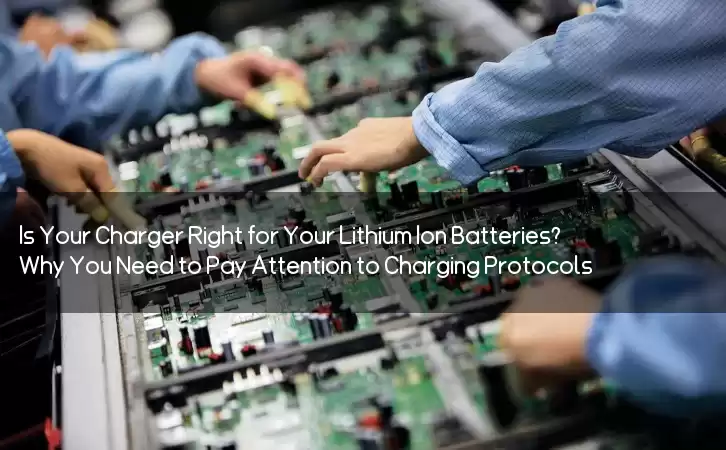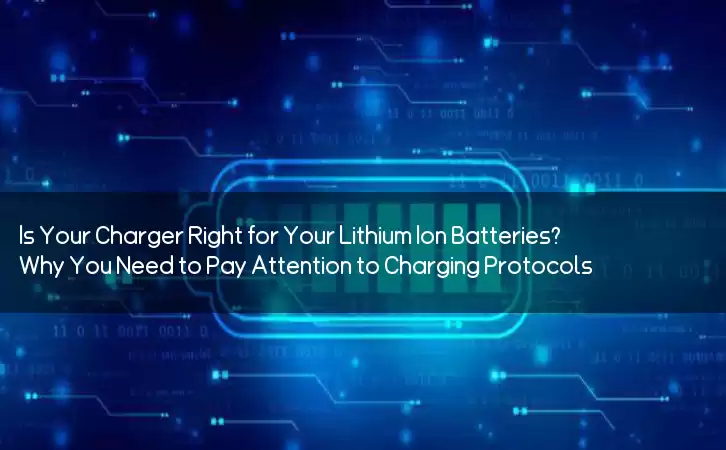Information Center
Is Your Charger Right for Your Lithium Ion Batteries? Why You Need to Pay Attention to Charging Protocols
Published:2023-05-27 19:43:04 Author:Green WCND Views:70Lithium ion batteries have grown in popularity in recent years, powering everything from smartphones and laptops to electric vehicles and even some homes. However, a common question that often arises is whether or not lithium ion batteries require special chargers. In short, the answer is yes, they do require a special charger designed specifically for these types of batteries.

Firstly, lithium ion batteries operate based on specific technical principles that differ from other types of batteries, such as nickel-cadmium (NiCad) or lead-acid. As a result, lithium ion batteries require a specific type of charger that is capable of monitoring and controlling the rate of charge, as well as the temperature of the battery to prevent overheating or overcharging. Failure to use a charger designed for lithium ion batteries could result in damage to the battery, shortened lifespan, or even a risk of fire or explosion.

Additionally, different types of lithium ion batteries require different charging protocols depending on their chemical composition and capacity. For example, a battery used in an electric vehicle will require a higher voltage and amperage output than a battery used in a smartphone. Using a charger with incorrect specifications can lead to irreversible damage of the battery.
In the past, different brands and models of lithium ion batteries required different chargers, making it difficult for consumers to keep track of which charger they needed for which battery. However, many modern lithium ion batteries now use a standardized charging port, such as the USB Type-C connection, making it easier for users to find a compatible charger.
In addition to using a charger designed specifically for lithium ion batteries, it is also important to follow proper charging practices to maintain the health of the battery. Charging a lithium ion battery to 100% capacity on a regular basis can shorten its lifespan, so it is recommended to stop charging at around 80-90% for everyday use. Furthermore, exposing a lithium ion battery to extreme temperatures can also damage it. Therefore, it is best to avoid charging the battery or subjecting it to temperatures above 35°C (95°F) and below 0°C (32°F).
In conclusion, lithium ion batteries do require a special charger designed specifically for their unique characteristics. Using a charger that is not designed for lithium ion batteries can damage the battery, shorten its lifespan, and even pose a risk of fire or explosion. Therefore, it is crucial to use the correct charger and follow proper charging practices to maintain the health and safety of your lithium ion batteries.
Power Adapter Design and Customization Guide for Portable Electric KettlesI. Common Design Types for Portable Electric Kettle Power AdaptersPortable electric ke···
I. Common Design Types of Power Adapters External Independent Type (Most Common) Design: A standalone adapter (e.g., "black brick") connected to the p···
Handheld Vacuum Cleaner Power Adapter Selection GuideIntroductionHandheld vacuum cleaners have become a mainstream tool for household cleaning due to their port···
Drill Power Adapter Selection Guide.drill-container { font-family: Arial, sans-serif; line-height: 1.6; max-width: 800px; margin: 0 auto; padding: 20px; } .dril···





